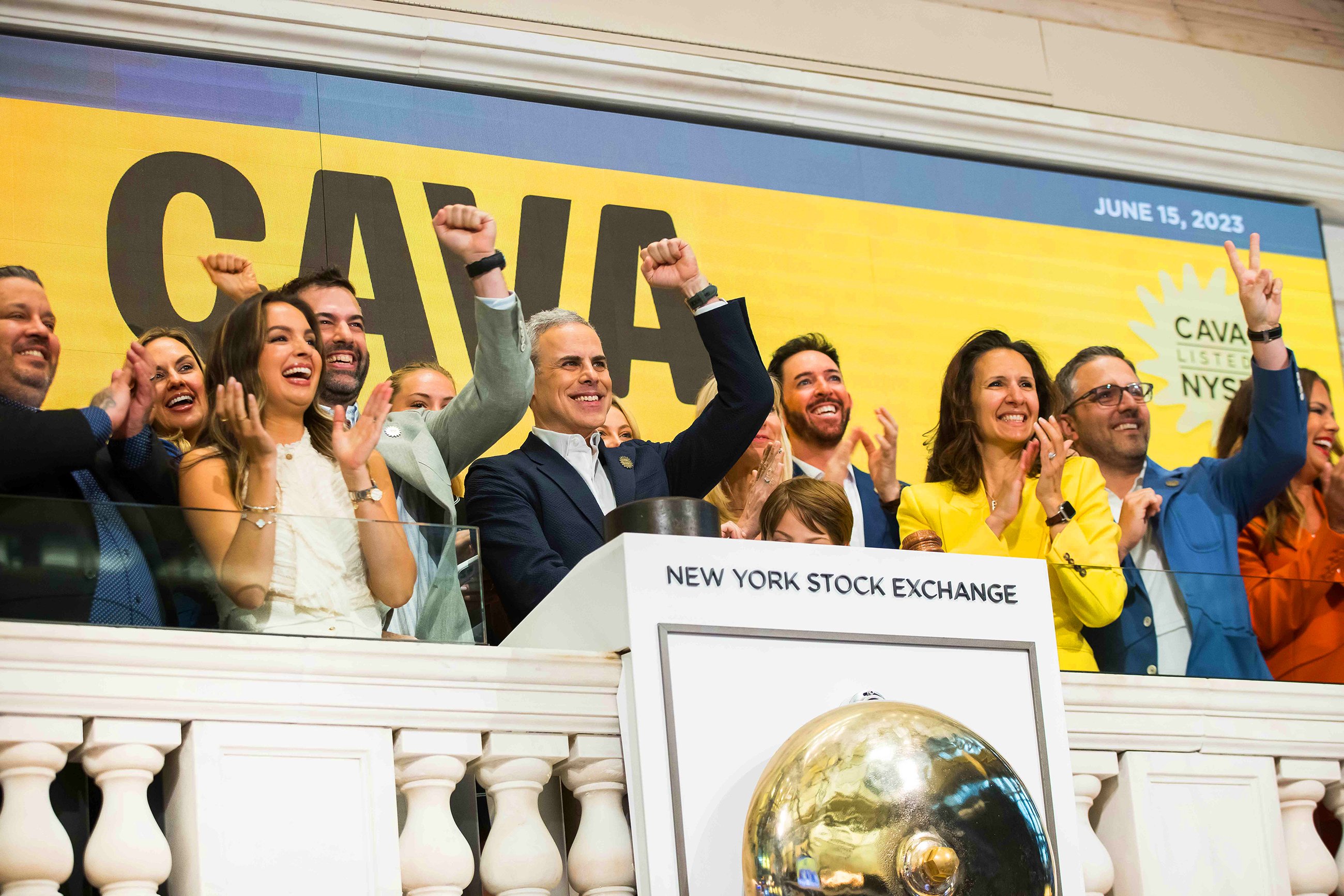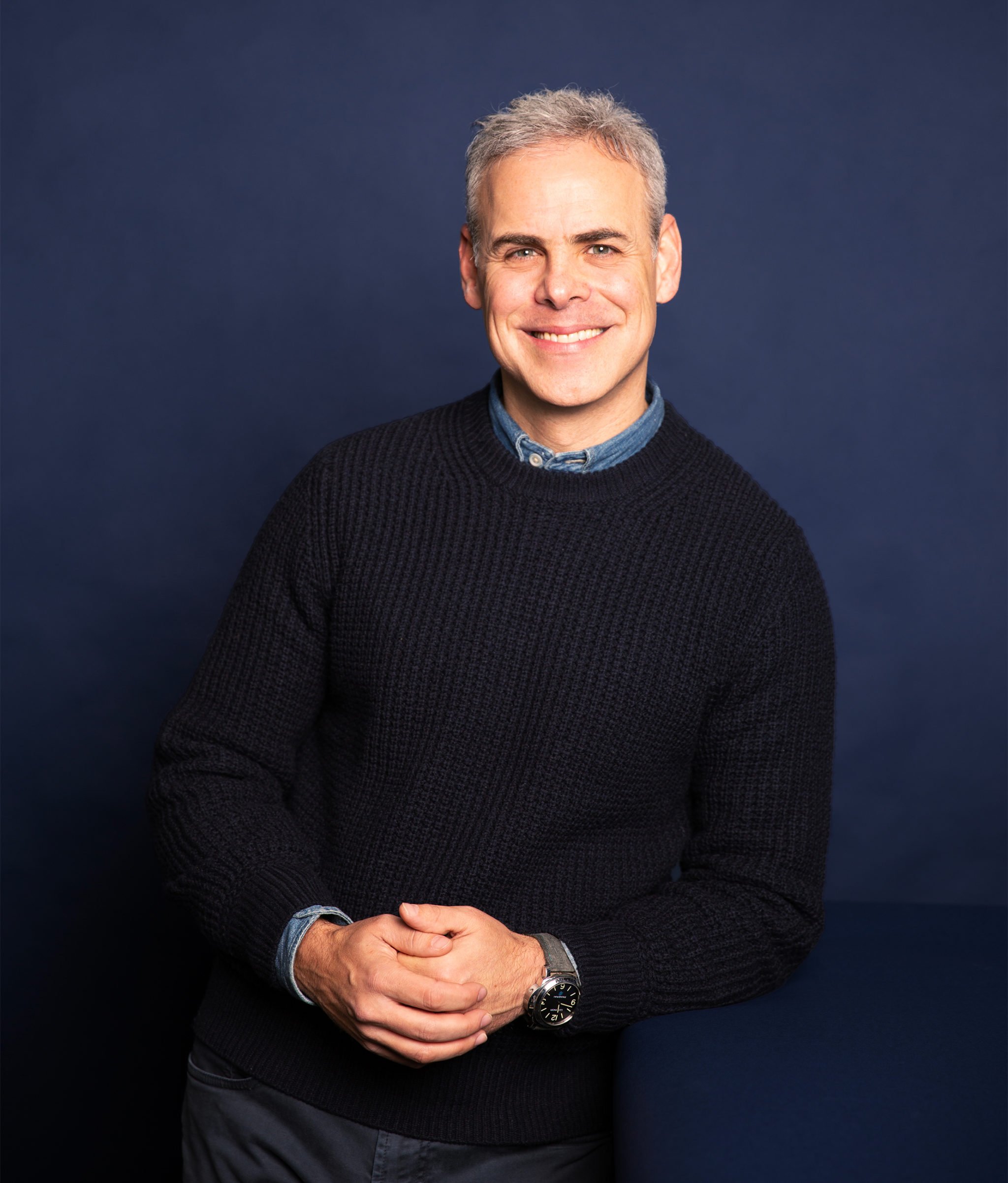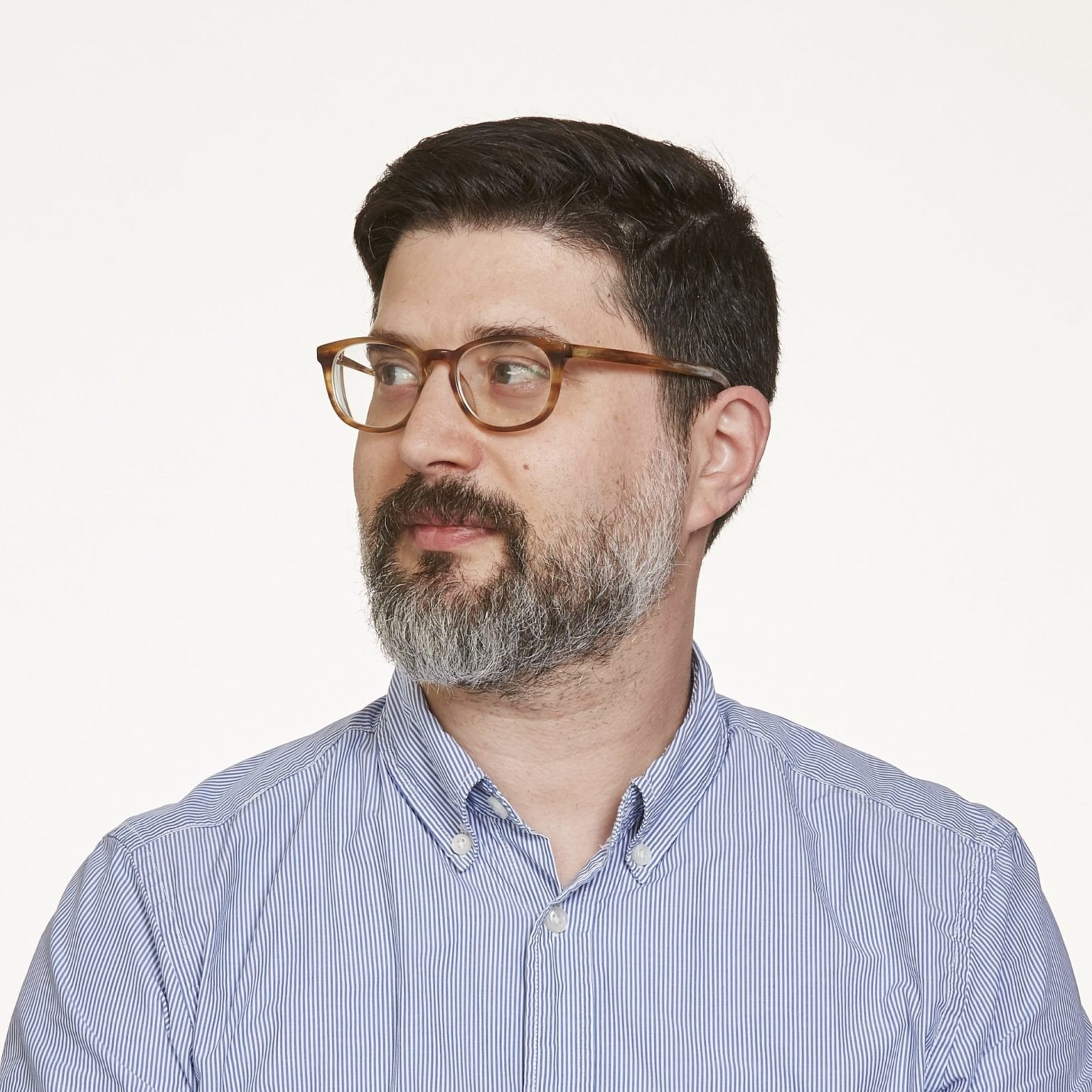When Washingtonian named the three guys behind Cava its Restaurateurs of the Year back in 2010, there were only two outposts of the Greek spot—Rockville and Barracks Row—and it was a sit-down eatery, not a fast-casual chain. The vibe and cuisine were worth seeking out, the magazine wrote, but “whether there will be a third Cava . . . the owners aren’t saying.”
That was before Brett Schulman became the CEO. Today, under his guidance, Cava has hundreds of restaurants in 24 states and DC, as well as a line of popular packaged dips and spreads. The company went public in 2023 with one of the year’s biggest IPOs, and Washington Business Journal named Schulman its 2023 CEO of the year. Cava recently moved into a gleaming, loft-like office space in the new City Ridge development, where we met up with Schulman to hear more about the company’s past and future. And because it occurred to us that he might be tired of talking about all that success, we figured we’d begin by asking him about screwing up.
One thing that CEOs often talk about is how important failure is and how if you’re not failing, you’re not taking enough risks. What’s a failure that’s been instructive for you?
Oh, yeah, where do I start? I do believe you learn so much more through your adversity than your success. The second location we opened [of Cava Mezze Grill] was in Tysons Corner Center. An opportunity came up at an entrance to the mall, but it was a sleepy entrance that was about 100 feet off the main corridor. Our hypothesis was that you’ve got mall traffic, you’ve got all the Tysons Corner offices, and people could come in, park in the garage, run in and get their food or eat quick. And we’re like, let’s do it. So we opened and . . . no one showed up.
Businesses are so defined by how they overcome adversity. So many hit a wall and they can’t get over it.
There’s no way to know for sure until you actually do it.
With all the data we have now, you can have much more information to inform where we go. But at the time, in March of 2012, we had a hypothesis. So we open up and it was tumbleweeds. And so I’m freaking out, because we only had money to open, like, two or three restaurants. So I’m yelling at the mall: You have to help us advertise—nobody knows we’re down this corridor!
So we said, look, we need to announce ourselves and welcome our neighbors to our table in this new community. About two weeks after we opened, we did our first Community Day, which we do when we open every restaurant now. We’re going to do free [meals] and we’ll match donations you make to a local philanthropic partner addressing food insecurity. So we did that. And within a couple of weeks, the line started to grow. People started coming. And by August, we had to buy those movie stanchions to corral people from blocking the whole concourse. It taught us that you have to go out and let people know you’re there. You can’t expect people to fall in your lap.
“If you build it, they will come” is not your guiding philosophy.
Not always. You’ve got to let people know you’ve built it.
And then they also have to like it.
They do. And that’s, I think, been an awesome theme of our history: that when we cook our food right, we serve with Cava hospitality, we pick the right real-estate location, this works incredibly well.
So how did you become the CEO of a fast-casual food company? You grew up in Montgomery County, right?
I grew up in Philadelphia, and then after middle school, my father’s job took him here and I went to Wootton High School. I’ve been in this area most of the 38 years since.
I read that your first job was washing cars at a car dealership?
That’s why we moved here: My father worked in the car business all of his life, and he had an opportunity to buy into a dealership in Bethesda called Schulman Buick. I washed cars there as my first job. But my dad lost his business in the recession in ’89—my formative high-school years. I lived through that and saw the challenges my father went through and how something that was going so well could go the other direction.
What effect does that have on you as a CEO? That has to loom in your mind.
It grounds me to know that just because things are going well today doesn’t ensure success tomorrow. It really has me calibrated to say: What’s coming down the road? What do I need to look out for?
And then you went to the University of Maryland, where you were thinking you were going to be a lawyer. You know that famous scene in The Graduate where an older guy gives Dustin Hoffman’s character life advice? “One word: plastics.” If someone had come up to you then and said, “One word: hummus,” what would your reaction have been?
[Laughs.] I would have looked at them a little cross-eyed. I don’t know that I’d even eaten hummus in college. Which I think is the fun kind of journey of life. That’s why I tell my kids it’s okay if you don’t have it all figured out right now. You never know where the journey will take you.

And you maybe weren’t an obvious candidate to run Cava. You’d worked in investment banking, then for the snack company your wife and her mother started, which you’ve said was not a big success. You only met the Cava founders because you were friends with one of their cousins at college.
Yeah. I always was interested in food—I had a passion for food. When I met my wife, Mary, she opened my eyes to the healthfulness, or lack thereof, of certain foods. It really started to change my perspective on how I ate. And then my experience through the [packaged snacks] business, I got very interested in food manufacturing—just the idea of being able to bring high-quality products to people at scale and more affordably.
Then I got the call from a friend from college who said, “Hey, will you talk to my cousin Ted?” And [Ted] said, “Listen, we’ve got this restaurant, Cava Mezze, and we partnered with this customer to do [packaged] dips and spreads. We’re struggling with it. Do you have any advice?” I gave him some advice. I checked back in, like, two months later when I decided I was going to leave the snack-food company. And he’s like, “What do you think about consulting for us?” I liked the product: The hummus was in our refrigerator.
Eventually, you came aboard as the fourth partner. And there was no fast-casual in mind at this point, right? It was a sit-down restaurant.
I had been a customer of fast-casual [restaurants]. I remember around that time, my in-laws had a place on the Eastern Shore, and we were driving back and our kids were hungry, so we stopped at a Chipotle. It was, like, $35 for the four of us back then. We went out two nights later to a sushi place. It was, like, $100 and the kids don’t even know what they’re eating. I was thinking about how fast-casual was going to continue to grow in relevance and how it was fitting that need—and that this Cava food would be such a good fit for it. I went to the guys and said, “What do you think?”
But this goes back to the thing about opening at Tysons. You have this insight, this idea. It sounds good, but you don’t know, right?
You need a little naiveté as an entrepreneur. It’s belief, it’s determination, it’s perseverance. And, you know, I think that’s the moral of the story. When you hear Ted and the guys [talking about] before my time in the original restaurant, all the things they did wrong—in spite of that, they succeeded. And they overcame it, because I think businesses are so defined by how they overcome adversity, because so many businesses hit a wall and they can’t get over it. Those that are able to figure out how to get over the wall go on to greater success.
That fast-casual bet obviously worked out. You have more than 300 outlets and thousands of employees. And now you run a public company, which comes with a ton of pressure. But you seem very chill. How do you handle stress?
Meditate. Listen to a lot of relaxing music.
What’s your relaxing music?
Um, Wilco. . . . My family makes fun of me: They call it downer music. But I call it chill music.
“Old-man music” is what it’s called in my house.
[Laughs.] Right. But in all seriousness, I like to compete and I like a certain amount of pressure. It’s fun when you’re doing it with a group of people and you’re able to deliver on what you set out to do and achieve a goal together with a group. That’s invigorating and rewarding. And that helps mitigate the stress. But honestly, I’m fortunate to be in a position to have it. We’re so fortunate to be able to do what we do.
What are the biggest stressors for you these days?
When people ask me what keeps me up at night, I say, “Everything.” I put my head on the pillow at night [worrying that, for example,] somebody might walk into one of our restaurants and be treated rudely, or it’s a mess. I couldn’t do what I do if I didn’t have the leadership team I have. I can’t do it myself.
There must be part of you that wants to just stand there in the Whole Foods and tell customers, “You have no idea how much went into making this hummus!”
It’s a lot of work! And there are so many things that could go wrong.
Hummus and Mediterranean food are, amazingly, still unfamiliar to a lot of people. I was at the Middle Eastern market Shemali’s on Connecticut Avenue recently, and a woman asked me what she should get because she wasn’t really familiar with anything. Even in a cosmopolitan place like DC, there is still unfamiliarity.
I think people are more open-minded and are actually seeking out newer, more interesting flavors, unfamiliar cuisines. They want to try new things. We’ve been here 13 years, and I think we are at 63-percent awareness right now. There’s 37 percent of people who still don’t truly know Cava. Which is great! Because it tells us how much opportunity we have in front of us.
This article appears in the February 2024 issue of Washingtonian.


















